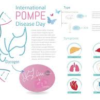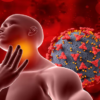Understanding Batten Disease and the Ayurvedic Perspective
Understanding Batten Disease and the Ayurvedic Perspective, or Neuronal Ceroid Lipofuscinosis (NCL), is a rare and devastating genetic disorder that primarily affects children. Characterized by progressive neurological decline, vision loss, and seizures, it ultimately leads to severe disability and premature death. With no known cure, families affected by Batten disease often seek alternative therapies, including Ayurveda, which offers a holistic approach to health and well-being. In this blog, we will explore Batten disease, its symptoms, potential treatments, and how Ayurvedic principles can contribute to managing this complex condition.
What is Batten Disease?
Batten disease is one of several forms of NCL, which is caused by the accumulation of lipopigments in the body’s tissues. This accumulation occurs due to mutations in genes responsible for the production of certain enzymes. The disease manifests in childhood, typically between the ages of 2 and 8, although symptoms can vary depending on the specific type of NCL.
Symptoms of Batten Disease

Symptoms of Batten disease may include:
- Vision Problems: Progressive vision loss is often one of the first symptoms, leading to blindness.
- Seizures: Many children with Batten disease experience seizures, which can be difficult to control.
- Motor Decline: As the disease progresses, children may lose the ability to walk, talk, and perform everyday tasks.
- Cognitive Decline: Learning difficulties and progressive cognitive impairment are common.
- Behavioral Changes: Irritability, aggression, and social withdrawal may occur.
- Skin and Hair Changes: Some forms of Batten disease may lead to skin and hair abnormalities.
These symptoms can severely impact the quality of life for affected children and their families.
Conventional Treatments
Currently, there is no cure for Batten disease, and treatment focuses primarily on managing symptoms. This can include:
- Antiepileptic medications for seizures.
- Physical therapy to maintain motor skills.
- Occupational therapy to help with daily activities.
- Supportive care, including counseling and support groups for families.
While these treatments can provide some relief, they do not address the underlying genetic cause of the disease. This limitation has led many families to explore alternative therapies, including Ayurveda.
What is Ayurveda?
Ayurveda is a traditional system of medicine originating in India over 5,000 years ago. It is based on the concept of balance between the body, mind, and spirit, emphasizing prevention and the treatment of disease through natural means. Ayurvedic medicine utilizes a variety of approaches, including herbal remedies, dietary recommendations, lifestyle changes, and mindfulness practices.
Key Principles of Ayurveda
- Doshas: Ayurveda identifies three primary energies—Vata, Pitta, and Kapha—that govern physiological functions. Each person has a unique constitution based on the balance of these doshas.
- Balance and Harmony: Health is viewed as a state of balance within the body and with the environment. Disease arises when this balance is disrupted.
- Holistic Approach: Ayurveda considers physical, mental, emotional, and spiritual aspects of health. Treatment plans are individualized to restore harmony.
- Preventive Care: Emphasis is placed on preventing illness through lifestyle and dietary practices.
Ayurvedic Management of Batten Disease
While Ayurveda cannot cure Batten disease, it can potentially provide supportive care that improves quality of life. Here are some Ayurvedic principles and practices that may be beneficial:
1. Dietary Modifications
Ayurveda emphasizes the importance of diet in maintaining health. For children with Batten disease, a balanced and nourishing diet can support overall well-being.
- Nutrient-Rich Foods: Incorporating fresh fruits, vegetables, whole grains, and healthy fats can help bolster the immune system.
- Herbs: Certain herbs, like Ashwagandha and Brahmi, are known for their neuroprotective properties and may support cognitive function and reduce anxiety.
- Digestive Health: Proper digestion is crucial in Ayurveda. Including spices like ginger and turmeric can enhance digestion and reduce inflammation.
2. Herbal Remedies
Ayurveda offers a range of herbal formulations that may support brain health and overall vitality. Some herbs that may be beneficial include:
- Brahmi (Bacopa monnieri): Known for its cognitive-enhancing properties, Brahmi may help improve memory and concentration.
- Ashwagandha (Withania somnifera): This adaptogenic herb can help manage stress and promote overall wellness.
- Turmeric (Curcuma longa): With its anti-inflammatory and antioxidant properties, turmeric may support brain health.
3. Panchakarma
Panchakarma is a detoxification and rejuvenation therapy in Ayurveda. This process involves a series of treatments designed to eliminate toxins and restore balance. For children with Batten disease, customized Panchakarma treatments can help improve overall health and well-being.
4. Mind-Body Practices
Stress management is essential for both children with Batten disease and their families. Ayurvedic practices like yoga, meditation, and pranayama (breathing exercises) can help reduce stress, promote relaxation, and improve emotional well-being.
5. Lifestyle Modifications
In Ayurveda, a balanced lifestyle is key to health. Encouraging a consistent routine, ensuring adequate sleep, and engaging in gentle physical activity can enhance quality of life for children with Batten disease. Activities like simple yoga postures or playful movement can improve motor skills and emotional health.
Family Support and Care
Supporting a child with Batten disease is emotionally and physically demanding for families. Integrating Ayurvedic principles can also extend to family care:
- Mindfulness Practices: Families can benefit from mindfulness techniques, helping them cope with the emotional challenges of caregiving.
- Community Support: Connecting with other families facing similar challenges can provide emotional support and practical advice.
- Education: Learning about both Batten disease and Ayurvedic practices can empower families to make informed choices about their child’s care.
Conclusion
Batten disease is a complex and challenging condition that requires comprehensive care. While conventional medicine plays a vital role in symptom management, Ayurveda offers a holistic approach that can complement traditional treatments. By focusing on diet, herbal remedies, detoxification, and mind-body practices, Ayurveda may help improve the quality of life for children with Batten disease and provide much-needed support to their families.
It is essential for families to work closely with healthcare providers, including Ayurvedic practitioners, to develop a safe and effective care plan. While the journey may be difficult, integrating Ayurvedic principles can provide a sense of hope and empowerment in the face of adversity.








Leave a reply